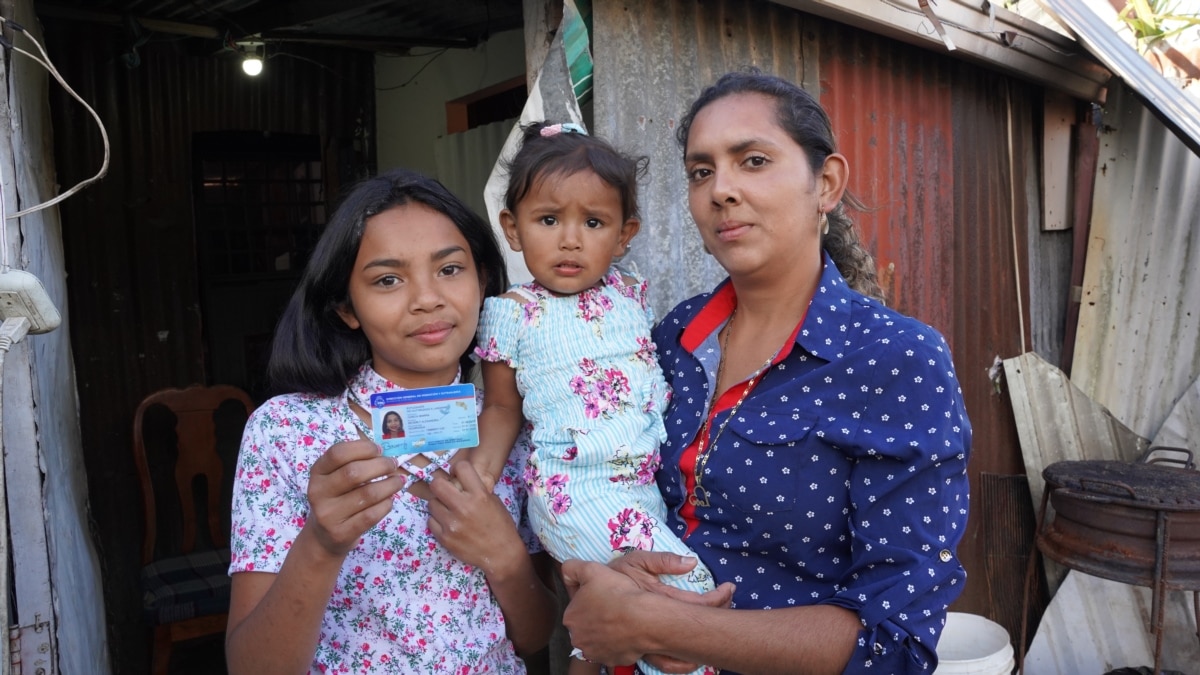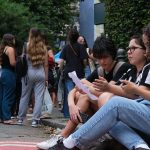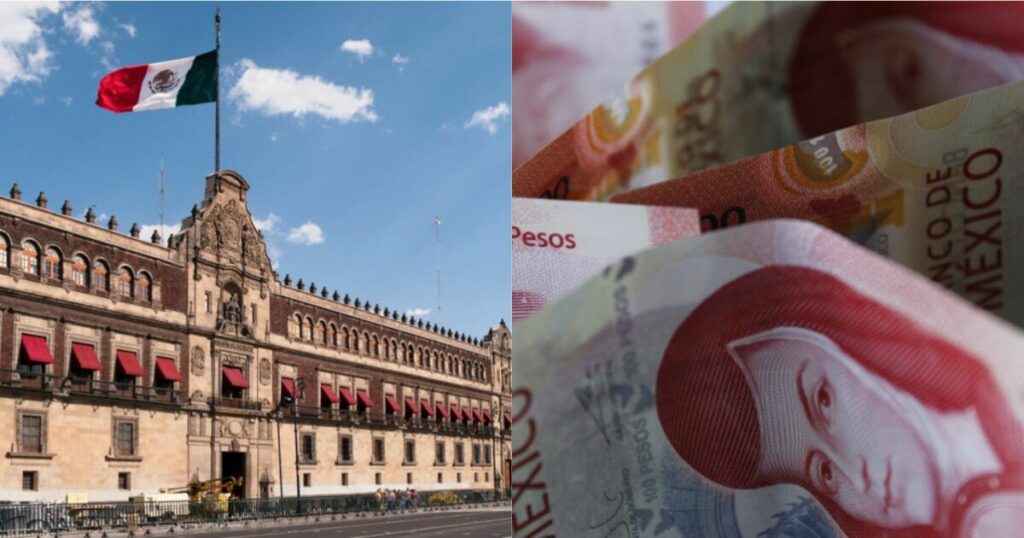12-year-old Nicaraguan girl Beverly García Ibarra received her Costa Rica-issued identification card earlier this year and has been able to live without fear ever since.
“They will no longer deport me to Nicaragua,” he said with a smile. “My mom joked about it,” she added.
Beverly had arrived on Costa Rican soil when she was barely three months old. Walkiria Ibarra, her mother, recalls that she made the “difficult decision” to emigrate in search of better living conditions for her daughter. Costa Rica, where some 171,000 Nicaraguans have taken refuge since 2018, opened its doors.
The good news for Beverly came through a notification that her mother received, informing her that her Dimex or Immigration Identity Document for Foreigners issued by the Costa Rican government was ready.
And the mother of the teenager also received it with emotion. “My daughter will be able to do something that I have not been able to: leave and enter the country legally,” she says.
Obtaining the Dimex document for Beverly took them a little less than a year, adds the minor’s mother. “The process was quick compared to other methods, such as asking for refuge,” she says.
Rosiel Vargas, coordinator of the Commission for Children and Adolescents, Migration and Foreigners of Costa Rica, commented that immigration in general, including Nicaraguans, has been regularized through various programs.
Costa Rica has made efforts in favor of migrant children, together with institutions that have played a fundamental role in the child protection system, including the United Nations (UN), through the United Nations Fund. for Children (UNICEF) and the UN Refugee Agency (UNHCR), experts say.
a universal right
According to article 15 of the Universal Declaration of Human Rights, everyone has the right to a nationality and no one can be arbitrarily deprived of it, nor of the right to change nationality.
But to fulfill this universal right, they must adjust to local legislation.
Jhon López, for example, fled Nicaragua at the age of 17 with his mother and took refuge in Costa Rica in 2018. Today he is one of the beneficiaries of a regularization program for migrant minors promoted by UNICEF.
López said that when she was in class she learned about a process to regularize minors and she told her mother and they applied. A year later she obtained the identification document from her.
“Thanks to that I have opportunities for scholarships. Now I am studying French at the University of Costa Rica”, he says excitedly.
His mother, Ruth Putoy, a housewife, indicates that she is proud of her son and says she is sure that he will arrive “long”, referring to the opportunities he has now that he has identity documentation.
The path to a new identity
There are different ways for those who seek to obtain an identity in Costa Rica, explains Daguer Hernández, former deputy director of Migration and Immigration of the Central American nation, who also ensures that identity and nationality go beyond a credential.
Hernández maintains that the best option for migrant children is to apply for a student permit, in case they do not apply for refuge or do not have options in any other immigration category.
“The most complex requirement is the issue of your apostilled birth certificate,” which people must get with their relatives or someone else in their country of origin. The rest of the requirements are payments “simple to meet here in Costa Rica Hernandez explained.
This student permit allows the minor to be legally enrolled in the educational system, with an identity document that allows them to access other benefits, such as scholarships.
“It gives minors the possibility within five years of having that identity document, of naturalizing themselves,” he said.
He also indicated that the ideal is that the five years elapse before the student turns 18, because in that case he is already an adult and will not have an immigration category in which to sustain his case, even if he has studied in the country.
The role of countries in child development
Carlos Guadamuz, from the Nicaragua Nunca Más Human Rights Collective, recalled that according to the principles established in the Universal Declaration of the Rights of the Child, states are primarily responsible for the comprehensive development of children.
In this sense, he pointed out that cases like Nicaragua’s show a series of human rights violations, because in addition to migrants for economic reasons, there are others who move with their sons and daughters in search of refuge, so it is about “true forced displacements”.
He mentioned that in the case of Nicaragua, the rights to identity are also violated on occasions, by denying people documents such as birth certificates, identity cards or passports, as well as withdrawing their citizenship rights by preventing them from entering the country in some cases.
The Nicaraguan government did not respond to a request for comment from the voice of america and The Press for this report.
An inter-institutional commission seeks to guarantee the rights of children
Rosiel Vargas, Migration and Aliens official, comments that children cannot be deported until they turn 18, which is the age at which they are considered adults in Costa Rica, so they work with the Ministry of Public Education in children in school and with the National Children’s Board (PANI) for those who do not travel accompanied.
Vargas explained that the purpose of the commission is precisely to find institutionalized children and adolescents who require identity documents.
He indicated that to date they have delivered a Dimex card in the student category to more than 12,686 children and adolescents of various nationalities, including Nicaraguans.
He stressed that the special category for students has existed for years and anyone who is in a public or private center can request a student category and stay regularly in Costa Rica.
Vargas commented that one of the commission’s projects is advancing jointly with UNICEF to support families that do not have resources, on the one hand lowering the cost and on the other financing those who cannot afford it.
“We work with UNICEF, which has supported us in this MEP migration regularization process (…) we also created a humanitarian fund and the management contributed its part to lower payments,” he said.
Parallel processes cannot be followed
Patricia Portela de Souza, UNICEF representative in Costa Rica, explained that in the case of children and adolescents seeking refuge, they cannot access that special Dimex because they must give up their process to start this new one.
“There are several children, there are more than 70,000 foreign boys and girls in the public education system in Costa Rica. A good part does not have documentation, ”she stated.
The UNICEF representative indicated that with this project there are already more than 6,000 children benefiting from this special process that reduced the cost of the card, which used to cost $120, in half, and the processes were streamlined.
Currently, work is being done on an expansion of this special project and UNICEF has the support of the United States Embassy, the Office of Population, Refugees and Migration of the US Department of State and for this new stage, France will support the initiative.
Little Beverly García, for her part, dreams of continuing her studies and being a legal professional. “Hopefully more kids like me get a card and feel better,” she concluded.
Connect with the Voice of America! Subscribe to our channel Youtube and activate notifications, or follow us on social networks: Facebook, Twitter and instagram.

![Beyond a card: Nicaraguan migrant children and their right to identity A group of children receive classes at a school located in a border area of Costa Rica. [Foto: Oscar Navarrete/LA PRENSA]](https://gdb.voanews.com/01000000-0aff-0242-71f3-08db0f08a6fb_w250_r0_s.jpg)

















